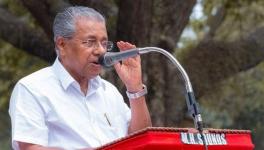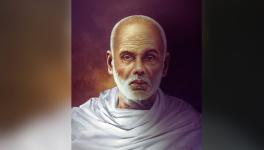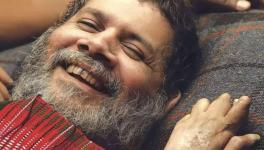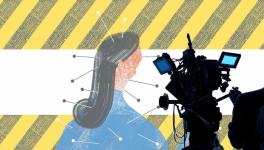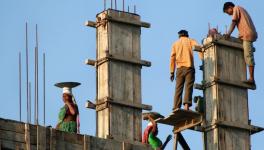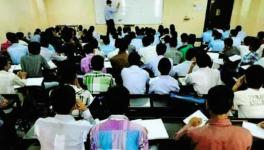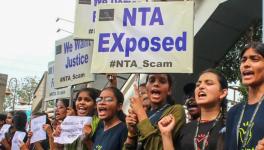AIPSC Calls for Fighting Inequality in Education, Health, Wealth
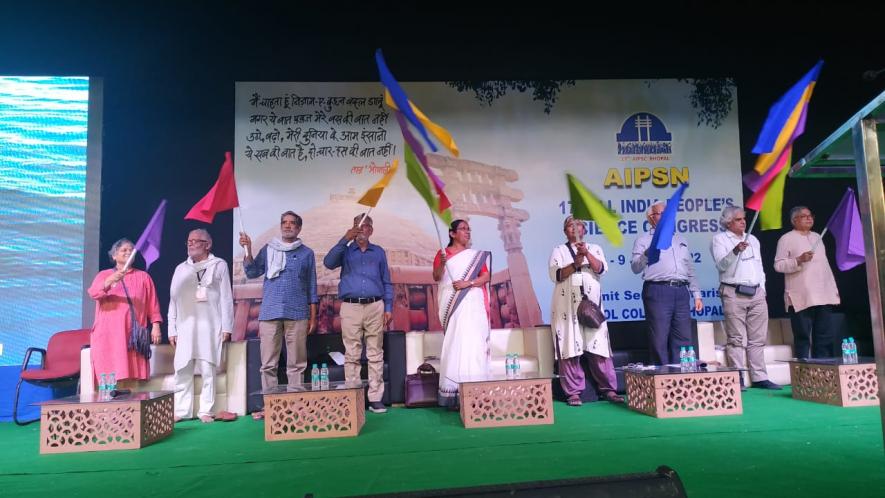
मैं चाहता हूं निज़ाम-ए-कुहन बदल डालूं
मगर ये बात फक़त मेरे बस की बात नहीं
उठो बढ़ो मेरी दुनिया के आम इंसानों
ये सब की बात है दो-चार दस की बात नहीं
~ ताज ‘भोपाली’
This verse by the late Urdu poet Taj Bhopali, giving a clarion call to common people to unite and change the time-worn system, is the spirit of the four-day 17th All India People’s Science Congress (AIPSC), which kicked off in Bhopal, Madhya Pradesh, on Monday.
The AIPSC, which started in a unique way with the reading of the Preamble of the Constitution, was inaugurated by chief guest KK Shailaja, the former health minister of Kerala who had guided the state during the COVID-19 crisis in 2020. The keynote speaker at the inaugural plenary was renowned journalist and writer P. Sainath. Other speakers included AIPSN president Dr Sabyasachi Chatterjee, AIPSN member Ramprakash, IMSc, Chennai, professor Indumathi D. and writer and poet Rajesh Joshi.
Around 1,000 scientists, academicians and activists from across 25 states will participate in the Congress, which has been divided into five sub-plenaries and more than 10 workshops.
With the theme of ‘The Idea of India @75’ the AIPSC started by stressing that “the future beckons India, especially its youth. To achieve its due, India needs to regenerate, reimagine and take forward the values and aspirations of its freedom movement in the contemporary context, learning from all the missteps, failures and missed opportunities over the years”.
Emphasising that “no country can progress if its people are divided against each other”, the Congress asked, “Seventy-five years after Independence, can we allow ourselves to be divided again?”
Comparing the four-day meet with the government’s Amrit Mahotsav, Sainath said that the AIPSC would discuss several crucial issues in about 20 sessions (sub-plenaries and workshops) whereas the Centre would conduct 50 events per day over the next year on a budget of Rs 110 crore.
Stressing the importance and need for promoting scientific temper and rationality Sainath said, “The COVID-19 pandemic gave a brilliant unsparing autopsy of our society. The corpse is on the table and you can clearly see the innards.”
The gaping inequality in education, health and wealth must be fought, Sainath said, pointing to the rise in the number of dollar billionaires in India during the pandemic—from 102 in 2019 to 166. “During the pandemic, while the Indian economy shrunk by 7.7%, the wealth of these billionaires increased by 95%.” He also cautioned against the increasing corporate hold over media, education and health
“The sectors which benefited the most during the pandemic include healthcare and online technologies, such as online education portals. The pandemic saw the making of 24 billionaires in the healthcare sector—the top 10 made Rs 5 billion per day,” Sainath revealed.
Asking whether India wants to build a “republic of reason or an ocean of irrationality”, Sainath cautioned against the rapid consolidation of the fundamentalist corporate state.
Discussing the Kerala model and highlighting how a scientific approach and teamwork helped in tackling the pandemic in Kerala, Shailaja said that no person in the state died due to lack of oxygen or non-availability of a hospital bed. Although Kerala has its own challenges in the health sector, the government has been steadfast in its resolve to serve people through decentralised planning and people-centric policies.
“During the pandemic, the ruling dispensation at the Centre has been spreading ‘infodemic’. All sorts of irrational propositions have been made by the leaders of the BJP-led Central government,” Shailaja said adding that the “only way to deal with public health emergencies is through scientific solutions”. She reminded that one of the Fundamental Duties mentioned in the Constitution specifies the development of the scientific temper, humanism and the spirit of inquiry and reform the Directive Principles of State Policy.
Commending AIPSN activists on their relentless fight against superstitions, irrationality and other evils, Shailaja emphasised the importance of science and technology and how it has been instrumental in human progress over the years.
Indumathi spoke about the need to address the divide between centres of scientific excellence on the one hand and universities and colleges, which have a vast pool of students. She highlighted that for higher education, a paltry 0.6% of GDP is allocated by the Central government.
Cultural groups from Bihar, Bhopal and the Northeast performed on the inaugural day. The plenary concluded with votes of thanks from Dr. Gyanendra Singh, chairperson of the 17th AIPSC organising committee.
Over the next three days, grass-roots activists from states and other subject experts will participate in sub-plenaries on education, the New Education Policy 2020, health, self-reliance and the privatisation of public sector units would be held. The Congress promises to have many brainstorming sessions on important issues being faced by the country and exhibitions aimed at dispelling the myths and superstitions in society.
Get the latest reports & analysis with people's perspective on Protests, movements & deep analytical videos, discussions of the current affairs in your Telegram app. Subscribe to NewsClick's Telegram channel & get Real-Time updates on stories, as they get published on our website.









